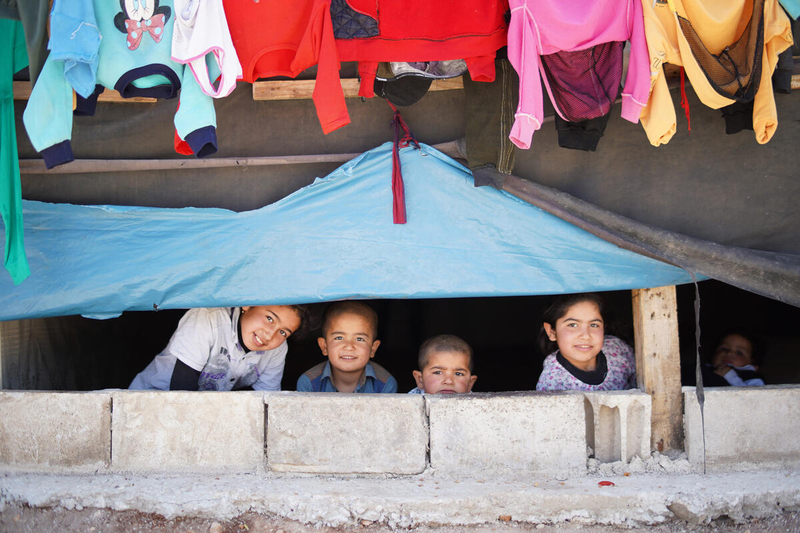
Syrians are facing unprecedented levels of hunger and millions are acutely vulnerable to contracting COVID-19, a key conference on the crisis will be told today.
The alarm has been sounded by World Vision and a host of international agencies who are calling on global leaders to ramp up their support for Syria and countries hosting refugees.
COVID-19 restrictions, the collapse of the Syrian pound, and the displacement of millions of people have led to an unprecedented number of families in Syria unable to put food on the table or afford basic necessities.
World Vision Australia acting CEO Graham Strong said the Brussels Conference today hosted by the EU and UN provided an ideal opportunity for the Australian Government to show its commitment to the Syrian people and mobilise necessary financial assistance.
"Today, more than 9.3 million Syrians will go to bed hungry, that is almost half of the Australian population," he said.
"They do not know when they will have their next meal or who will deliver it. Conflict, displacement, hindered humanitarian access and the sheer lack of support from the international community is forcing millions of Syrian children and their families into unparalleled desperation and destitution.
"Syria's children cannot wait. The COVID-19 pandemic has made a bad situation worse, the world cannot turn its eye away from the crisis."
He said in the past, Australia has contributed generously to alleviate the suffering of the Syrian people.
"Syria's children are our greatest hope for recovery and the future, but they are being crushed by the consequence of conflict, displacement and starvation," he said.
"We need to act now to prevent the breakdown of entire communities. The Brussels IV Conference is an opportunity for world leaders to show their commitment to the Syrian people."
The Brussels Conference aims to raise funds and agree on policy changes that will help Syrians inside the country and in the region.
World Vision International, Oxfam, Humanity & Inclusion, CARE International, International Rescue Committee, Mercy Corps, and the Norwegian Refugee Council warn that unless funding and humanitarian access are increased, many Syrians, including those living as refugees in the region, will be pushed to the brink of starvation.
In the north-west, a Turkey-Russia mediated ceasefire faces a bleak fate, with fighting and aerial bombardments reported since May. Idlib and northern Aleppo governorates are home to over 4 million people - many of whom have been displaced multiple times - who face a potential catastrophe if there is a COVID-19 outbreak. Many live in squalid makeshift overcrowded camps or sleep out in the open. Water is scarce, and health and civilian infrastructures are decimated.
In recent weeks, a new wave of violence in southern Idlib has forced hundreds of families to pack up their few belongings and leave their homes and tents once again.
In the north-east, the first cases of COVID-19 were confirmed over a month ago, and a lack of preparedness remains a major concern, including limited COVID-19 testing capacity, chronically understocked health facilities, and the main water pumping station - servicing 460,000 people - regularly being out of commission.
As in the north-west, implementing measures to prevent the spread of coronavirus is especially difficult in overcrowded camps and informal settlements across the region.
International agencies are calling on global leaders to scale up financial support in comparison to previous years for Syrians in their country and those displaced in the region so that they can have a chance not only to survive, but to rebuild their lives safely and with dignity.
They have also called for the United Nations Security Council to renew the Syria cross-border resolution for north-west Syria for 12 months, and re-authorise access to north-east Syria to ensure that vulnerable people can receive lifesaving assistance. Improving access to those in need is a crucial right for the humanitarian community to support families struggling through the pandemic and the country's economic crisis.






